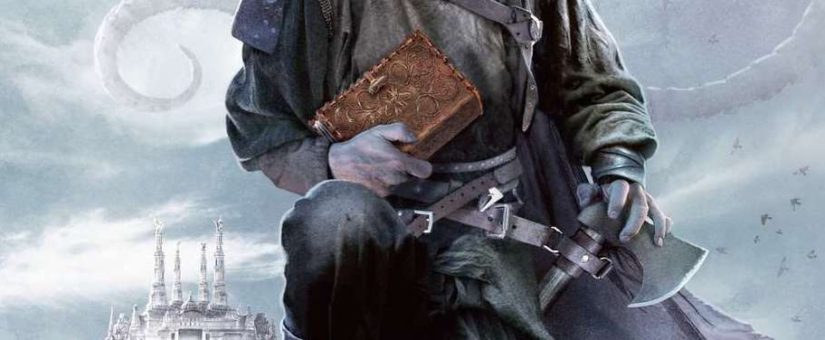
Re-reading The Farseer Trilogy: An Introduction
- Posted by Augur Blog
- On January 9, 2019
- 0 Comments
- Farseer trilogy, Robin Hobb
By Mado Christie
Just over one and a half years ago, the final book in Robin Hobb’s epic Realm of the Elderlings series was released.
I had been waiting for Assassin’s Fate to arrive for years, and I devoured it in a matter of days. I remember reading the final few hundred pages one evening on my porch. My eyes strained to take in the words as the light dwindled, but I couldn’t move to a spot with more light. I was riveted.
I can clearly recall reaching the final pages of the book: my breath left my lungs in a dead huff. I had been weeping for pages and pages, but now that I was at the end, my cathartic sadness was replaced with confusion.
There was something wrong with the ending.
I thought I must have read it wrong. I read it again and again, trying to puzzle it out. This wasn’t what I’d expected from the end of this book, of this trilogy, of this series. Of course, this is normally a good thing: I never want to be able to predict the ending of a book. But the kind of confusion I was feeling was so deeply painful that I could barely describe it to myself.
Days passed and I processed the ending both internally and by chatting online with other Hobb readers who had also just finished the series. Some of these readers expressed the same confusion I had been feeling, but as we talked it out, the ending became less painful and more satisfying. I decided that yes, I must have read that last section wrong, and so the ending was fine after all.
Fine, but not great.
There is still a gnawing feeling in the pit of my stomach whenever I think about the end of the RotE books. I love them deeply, but sometimes it is the things we love most that can hurt us most.
I still experience a particular thrill when someone asks me for fantasy novel recommendations. If they haven’t read Hobb—and they usually haven’t—I immediately recommend the Farseer trilogy, beginning with Assassin’s Apprentice. It is far and away my favourite high fantasy series of all time.
The writing is excellent, the world is rich and unique, and I cherish the characters within as though they were close friends. I talked about how much this series means to me in the post I wrote during our Kickstarter campaign last fall. Chief among my reasons for loving the series is how queer it is. Or at least, how queer it appears to be.
I knew before I finished Assassin’s Fate that I wanted to re-read the series, but that ending made my need to begin again all the more urgent.
So I’ll be re-reading the Farseer trilogy over the course of this year, and I’ll be posting updates on my experience every time I finish one of the books. I want to re-read these books for the usual reasons: nostalgia, enjoyment, picking up on details I may have missed or may have forgotten. But there’s another motivating force behind my desire to re-read them, and it all comes back to the ending of Assassin’s Fate.
I want to know how we got there. I want to understand it more fully. I want to see if there were any clues that I might have missed along the way. I also want to make sure I’m recommending the series responsibly. I can absolutely recommend it on the basis of the writing and the characters, but maybe through this
I’m really excited to get back into them, of course. It’s been so many years since I read these first books, and I’ve changed so much as a person and as a reader since then. I’m excited to jump back into Hobb’s vibrant and completely one-of-a-kind world.
But I’m also nervous.
I’m afraid that I’m remembering things in the books—particularly the queer representation—with rose-coloured glasses on. The Realm of the Elderlings was the first fantasy series I ever read that featured a genderqueer character. I so deeply connected to the Fool, but did I overlook things then that might make me cringe, now?
These are things I will be looking out for as I dive into the trilogy, and I’ll report back with my findings as soon as I finish Assassin’s Apprentice.
What else has Augur read? Check out our Best Books of 2018.




0 Comments